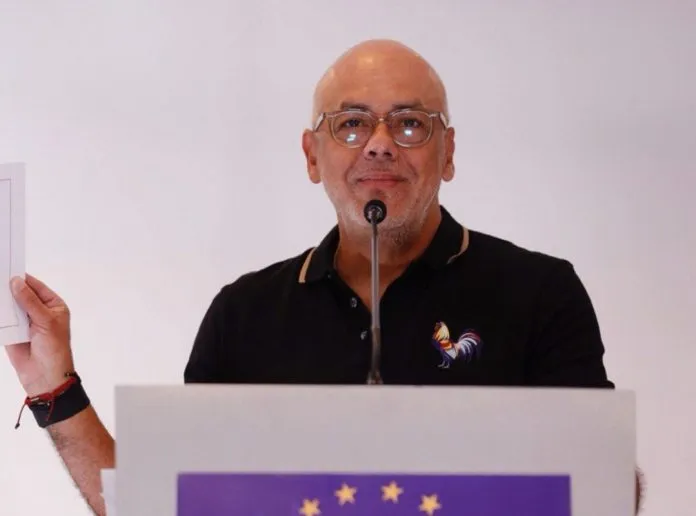Introduction
In the wake of contentious presidential elections in Venezuela, the Chavista government has mobilized its supporters for large-scale demonstrations. This move, announced by Jorge Rodríguez, head of President Nicolás Maduro’s campaign and President of the National Assembly, is framed as a response to opposition actions and aims to assert control and defend the outcome of the elections. This article delves into the details of Rodríguez’s call for marches, the broader context of the political situation, and the reactions from various stakeholders.
Background: The Venezuelan Election Crisis
Election Results and Controversies
On Sunday, July 28, Venezuelan voters went to the polls in a highly anticipated presidential election. According to the National Electoral Council (CNE), President Nicolás Maduro secured a victory with 51.2% of the vote. However, these results have been met with skepticism from both the opposition and international observers. The discrepancies between official results and independent reports have fueled accusations of electoral fraud and manipulation.
The opposition, led by figures such as Edmundo González Urrutia, has rejected the results, citing irregularities and questioning the credibility of the electoral process. The controversy has led to widespread protests and calls for transparency and a recount.
Government Response and Public Protests
In response to the disputed election results, protests erupted across Venezuela. Demonstrators took to the streets in various states to express their dissatisfaction with the outcome. Reports indicate that the protests were met with a heavy-handed response from security forces. The Bolivarian National Guard (GNB) and the National Bolivarian Police deployed tear gas and rubber bullets against peaceful protesters, resulting in multiple arrests.
The government’s response to the protests and the opposition’s claims has further polarized the situation, with both sides accusing each other of inciting violence and undermining democratic processes.
Chavismo’s Call to Action
Jorge Rodríguez’s Announcement
In a broadcasted address, Jorge Rodríguez called upon all “revolutionary forces” to participate in mass marches scheduled for Tuesday at 2:00 PM. Rodríguez’s announcement was framed as a defensive measure to uphold peace and counteract what he described as opposition attempts to incite violence. The call for marches is intended to demonstrate the government’s strength and its commitment to maintaining order amidst the unrest.
Convocamos al pueblo de Venezuela a grandes marchas desde este martes para celebrar la victoria y defender la paz de la República. El fascismo no recurre a elecciones, solo fue una excusa para desarrollar su agenda violenta y no lo vamos a permitir. ¡Se volvieron a equivocar! pic.twitter.com/p7xgAQ1SDV
— Jorge Rodríguez (@jorgerpsuv) July 29, 2024
Rodríguez’s rhetoric underscores a broader strategy by the Chavista government to mobilize its base and assert control over the narrative surrounding the election results. By encouraging large-scale demonstrations, the government aims to showcase its support and counterbalance the opposition’s protests.
Objectives of the Marches
Rodríguez emphasized that the marches would serve multiple purposes:
- Defending Peace: The primary objective is to present the Chavista government as a guardian of peace and stability. By mobilizing supporters, the government seeks to demonstrate that it holds significant popular support and to counter the opposition’s claims of electoral fraud.
- Show of Strength: The government aims to project strength and unity, sending a message that it will not tolerate challenges to its authority. The large-scale nature of the marches is intended to reinforce the government’s position and undermine the opposition’s claims.
- Public Support: The government is also using the marches to rally public support and create a sense of solidarity among its base. This effort is meant to strengthen the government’s legitimacy and to provide a counter-narrative to the opposition’s protests.
Reactions to the Government’s Call
Opposition’s Response
The opposition, led by Edmundo González Urrutia, has not formally endorsed or organized protests in response to Rodríguez’s call for marches. However, the opposition’s stance remains critical of the government’s actions and the election results. The opposition’s leaders have emphasized the need for transparency and an independent review of the electoral process.
International Reactions
The international community has been closely monitoring the situation in Venezuela. Many countries and organizations have expressed concern over the election results and the government’s response to protests. The call for marches and the subsequent government actions are likely to influence international reactions and may prompt further diplomatic interventions.
Public Sentiment
Public sentiment in Venezuela remains divided. Supporters of the government view the marches as a legitimate expression of political strength and unity, while critics see them as an attempt to stifle dissent and consolidate power. The ongoing unrest and the contrasting views on the election results reflect a broader crisis of confidence in the country’s political institutions.
Implications for Venezuelan Politics
Impact on Governance
The government’s call for marches and its handling of the protests have significant implications for Venezuelan governance. The ability to maintain control and manage public unrest will be crucial in determining the stability of the government and the overall political climate. The government’s response to the protests and the opposition’s challenges will shape the future of Venezuelan democracy and governance.
Future Prospects for Reconciliation
The current crisis underscores the need for dialogue and reconciliation between the government and the opposition. Finding common ground and addressing the concerns raised by both sides will be essential in resolving the political impasse and restoring stability. The role of international actors and the response of the Venezuelan public will play a key role in shaping the future of the country.
Conclusion
Jorge Rodríguez’s call for mass marches reflects a strategic response by the Chavista government to the electoral controversy and the opposition’s protests. The government aims to demonstrate its strength and commitment to peace while countering claims of electoral fraud. As Venezuela navigates this period of political turmoil, the actions of both the government and opposition, along with international reactions, will play a critical role in determining the country’s future.


